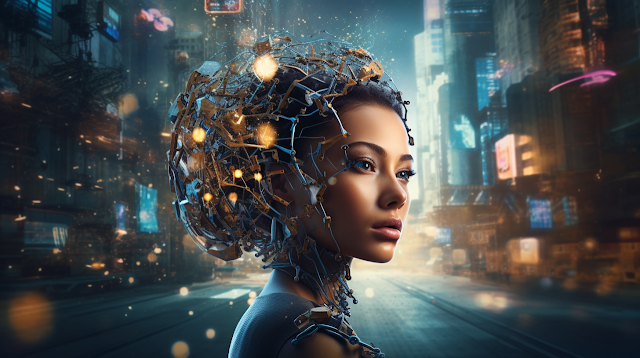The dawn of Artificial Intelligence (AI) technology has ushered in an era where the constraints of content creation and multimedia production are continuously being pushed beyond traditional boundaries. Today, AI stands not merely as an auxiliary tool but as a core engine driving innovation across various spectrums of media production from text and graphics creation to music, video, and beyond. In this insightful dive, we unravel how AI is reshaping the landscape of multimedia production, offering unprecedented capabilities that enhance creativity, efficiency, and accessibility.
The Revolution in Text-Based Content Creation
Gone are the days when textual content generation solely depended on the human pen. AI-driven platforms have emerged, revolutionizing how written content is produced. These systems, powered by sophisticated algorithms and machine learning (ML), can generate articles, reports, narratives, and even entire books with minimal human intervention. Language models like OpenAI's GPT-3 exemplify this leap, offering nuanced and coherent writing that adapts to various styles and purposes, from academic papers to creative storytelling.
SEO Tailored Writing
The infusion of AI in content creation also extends to search engine optimization (SEO). AI writers are adept at identifying and integrating key SEO strategies within texts. By analyzing vast datasets on search patterns and keyword effectiveness, these tools can optimize content for better visibility and engagement online, making it a game-changer for digital marketing and blogging.
Transforming Graphic Design and Visualization
AI's reach beyond text manifests strikingly in the realm of graphic design and visual content creation. Graphic design AI tools can now interpret textual descriptions and convert them into stunning graphics, charts, logos, and even fully designed web pages. This not only democratizes design, allowing non-experts to create high-quality visuals but also significantly speeds up the design process, enabling real-time iteration and customization.
Automatic Video Generation and Editing
The video production industry is another beneficiary of AI's transformative touch. AI applications can automate much of the video creation and editing process, translating scripts into storyboards and even generating animated sequences directly from text instructions. Moreover, AI-driven editing software can optimize video content for various platforms, cropping, and adjusting videos to meet the specific requirements of social media channels, thereby stream manipulation and distribution incredibly streamlined.
Music and Sound Design with AI
AI is also composing its own symphonies in the world of music and sound design, proving its versatility and creativity. AI music generators can create original compositions in various genres, emulating the styles of famous artists or concocting entirely new sounds. This technology provides filmmakers, advertisers, and creators a wealth of custom soundtracks and effects, drastically reducing costs and time associated with traditional music production and licensing.
The Role of AI in Personalization and Content Adaptation
Perhaps one of the most significant advantages of AI in multimedia production is its ability to personalize content. AI can analyze user data to tailor content across media types, ensuring a highly personalized viewer or listener experience. From customized news feeds to personalized movie recommendations and adaptive music playlists, AI is making media consumption uniquely individualized.
Moreover, AI's capability to automatically translate text and adapt multimedia for different languages and regional contexts broadens audience reach, breaking down language barriers and cultural divides. This not only enhances user experience but opens up global markets for content creators and media producers.
Ethical Considerations and the Future
As with any disruptive technology, AI's burgeoning role in multimedia production raises important ethical questions. Issues such as copyright, intellectual property, the authenticity of AI-generated art, and the potential for misleading.




0 Comments
Post a Comment